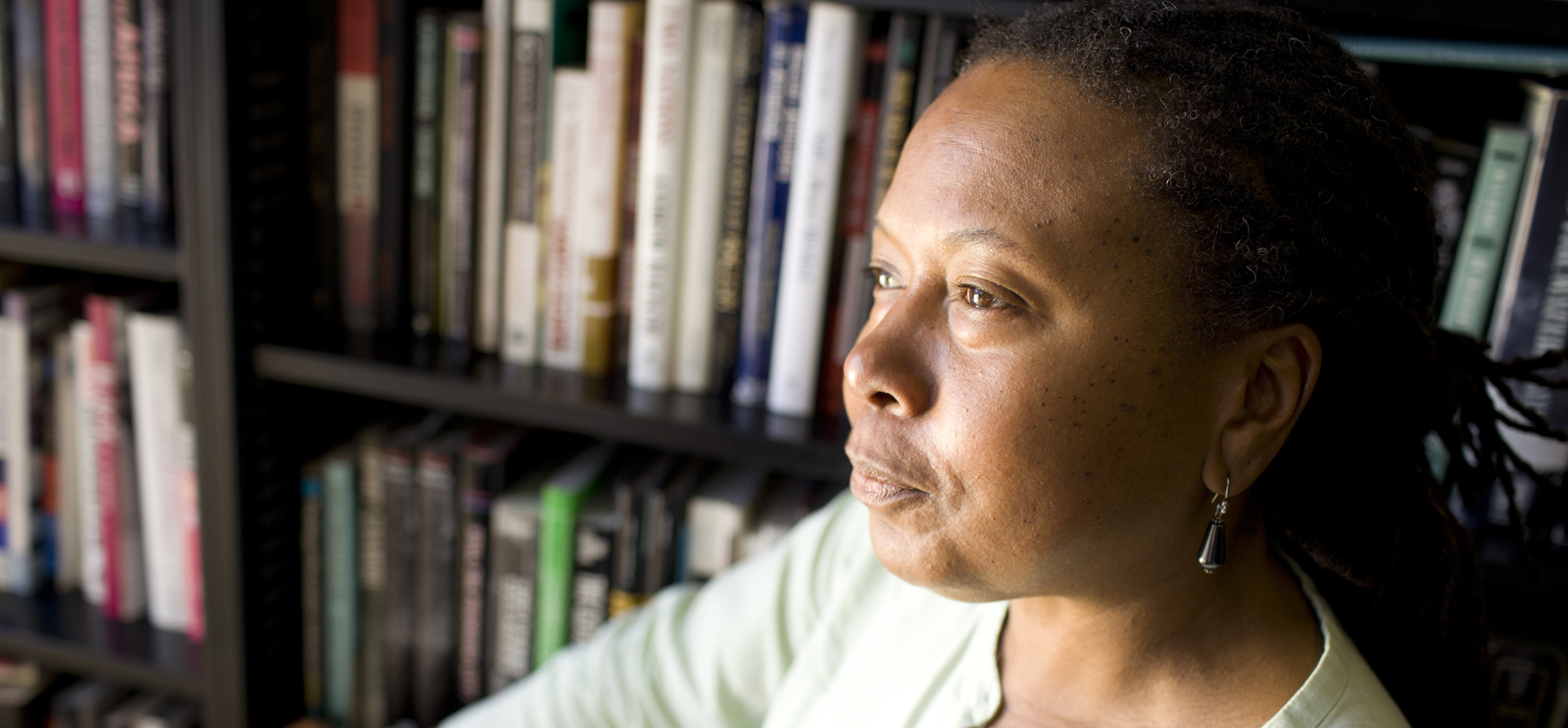
Cathy Cohen. (Photography by Chris Strong)
Cathy Cohen’s team digs into the opinions of an oft-generalized generation.
Two sentences sum it up: “Any talk of a monolithic youth vote is uninformed. There are vast differences in who young adults plan to vote for in November based on race and ethnicity.”
That’s the first bullet point in the first report from the GenForward Survey. Launched this past June, as the 2016 presidential field narrowed to its two final candidates, GenForward is the first monthly survey to parse the opinions of millennials—people aged 18 to 30—by race and ethnicity: African American, Latino/a, Asian American, and non-Hispanic whites.
“We jokingly call ourselves the Pew of young people,” says Cathy J. Cohen, the David and Mary Winton Green Professor of Political Science and the College, who leads the survey, a collaboration between the Black Youth Project and the Associated Press–NORC Center for Public Affairs Research. Through November 8 and its immediate aftermath, GenForward tracked the opinions of young adults on the presidential candidates and election issues, including gun control, race, police-community relations, immigration, and income inequality.
The survey is also responsive to events as they unfold. After the mass shooting at the Pulse nightclub in Orlando, Florida, in June, it asked respondents about possible motivations behind the attack as well as their views on LGBTQ rights. Meanwhile, as president Barack Obama campaigned for Hillary Clinton, the survey also dug into his popularity and opinions about his possible legacy.
Going forward, Cohen says, the survey will be conducted on a bimonthly basis. “We did it monthly through the election because things moved so quickly. But we also found that we were generating too much data for the media to digest”—even with frequent coverage in the New York Times and other major outlets. And while keeping up with the fast-paced Trump administration has proved challenging, GenForward has entered the new era at full speed, with batteries of questions probing attitudes toward—for a start—immigration, health care, and Russian involvement in the election.
Cohen notes that by 2020, millennials and their successors, generation Z, will comprise the majority of the population. “Unless you’re doing rigorous and insightful polling of young adults, you’re going to miss something consequential,” she says. And because they’ll also be the most diverse voting bloc in US history, Cohen adds, “you just have to pay attention to issues of race and ethnicity.”
For a deep dive on the survey’s methodology and to explore the results of other survey questions, go to genforwardsurvey.com.

The three most important problems, by race and ethnicity
Each month from June through October, the survey asked respondents to identify the top three problems facing the country. These are the last results prior to the election.
African American adults 18–30
- Racism
- Police brutality
- Education
Asian American adults 18–30
- Education
- Racism
- Gun control
Latino/a adults 18–30
- Immigration
- Terrorism and homeland security
- Racism
Non-Hispanic white adults 18–30
- Terrorism and homeland security
- Education
- National debt, environment, climate change, and health care
